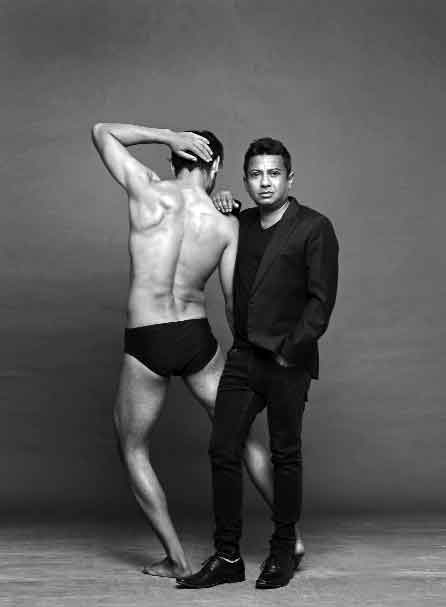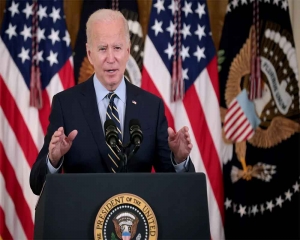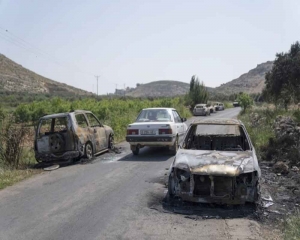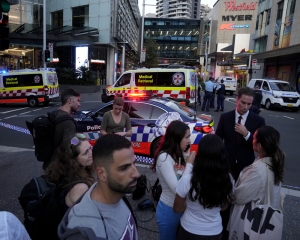September 6, 2018 will always remain as one of the most significant date in the history of LGBTQ rights. The world’s largest democracy finally decriminalised the sexual act between two consenting adults. It is not just about the LGBTQ movement in India but an important step and a sign of hope for millions more living under repressive laws in different parts of the world, largely made possible thanks to regressive religious arguments supported by distortion of history and science.
Of course we are still a long way from having equal rights as every other citizen of this country. Many more battles have to be fought on various levels, social, political, legal and most importantly, the mind space.
On September 6, I was kind of trying not to think, felt numb with anticipation. The shock and hurt caused due to the Supreme Court Verdict of 2013 against the 2009 Delhi High Court ruling on IPC 377 had still not healed. There was a time that I started to believe that it would not happen in my lifetime. The 2013 verdict had dis-empowered me not only at a personal level but as a filmmaker too.
I could not fight and defend my film when some members of the screening committee of the CBFC Board in 2017 said that I was sending across a wrong message to youngsters that being gay was normal through my film. What haunts me still is the audacity of one of the members looking at me, someone who has been open all my life and saying “but you have showed ‘them’ as normal.”
Now I feel empowered as a filmmaker to be able to fight discrimination. A gay kiss is as normal and cannot be the reason for a film being certified as adults only. I feel empowered as a filmmaker to once again start trying to tell the stories I want to, the untold stories from the large spectrum of the LGBTQI lives.
I have been doing a lot of talks at corporates about inclusion and feel sad that I do not see that effort in my own industry to recognise and act on the void of LGBTQI narratives, or recognize the people who have been working to use this medium to spread the message of acceptance. Somehow, we have never owned up to it that our industry has very often than not promoted stereotypes and harmed not only the perception of the LGBTQI community but also women. I hope this changes, and changes fast.
I feel empowered personally that I have the same rights to desire, love and express myself sexually as any other citizen of the country. My expression of desire is no longer criminalised, no longer shamed. This judgment is going to give courage to so many people to slowly come to respect their identity and lead honest lives. Shame has very often been the reason for many to lead a dishonest life in a heterosexual marriage. This dishonesty not only hurts them but their unsuspecting spouse.
With homosexuality being decriminalised, it empowers various NGOs working in this space to legally and more openly spread the message of health, rights and acceptance. Hopefully media and cinema, too, will play their role. Property rights, insurance, health care, adoption rights are many of the other concerns.
Sometimes, when people start talking of marriage rights, I question, do we really need to appropriate everything that a hetero normative patriarchal society perpetuated into our space? But then why should my views deny the rights to marriage to many who find beauty in the act, the symbol? Sometimes I feel the need to get married just to prove a point, To say ‘we are’.
Today, what matters most is to collectively work towards a more inclusive society. For that it’s important how children are trained to recognise the importance of not only accepting but also celebrating diversity. To use the very tools of science and history that has been used to discriminate and humiliate. We as a culture have the good fortune to be able to look back at our own glorious history, a history that celebrated diversity. That celebrated desire and sex as a form of art and science, not of shame.
We need to educate our children by telling them the narratives we always excluded from our curriculum. That homosexuality is prevalent in the plant and animal kingdom too and it is a part of nature. Just like food is not only for survival, sex is not only about procreation. For those who misuse religion to justify atrocities against anyone who does not fit their scheme of things, to impress upon them that religion was formed to serve humanity and not the other way round, and it cannot be something we cannot question. Like life, this too needs to change, evolve and be a part of the process of a kinder world, rather than that continues to dehumanise and destroy and perpetuate hate.
But as of now this year is to celebrate the right to desire. I have told myself that I will no longer go through the agony of being in a relationship with someone who can’t be open and respect it. I want to walk hand in hand with someone I love and as Tagore would have said, “with our heads held high.”
Unshackled
Underlining the supremacy of constitutional morality over societal morality, the Supreme Court had scrapped a 158-year-old British-era law that banned same-sex relationship between consenting adults in private and punished them with a jail term for life or up to 10 years
With the scrapping of Section 377, India joins Vatican City (1890), the US (2003), Fiji (2010), Nepal (2007), Seychelles (2018) and Canada (1969) to decriminalise homosexuality. It has never been illegal in countries like Indonesia, North Korea, South Korea, Poland, Taiwan and even Vietnam
According to National Crime Records Bureau data, between 2014 and 2016, there were 4,690 cases of persons being booked under Section 377, a law enacted in 1861 that criminalised sexual activities against the order of nature and ended up being applied even to consensual homosexual sex between adults. Adjusting for the total population of a state, Delhi topped with a rate of 0.8 cases registered under Section 377 per 1 lakh. It was followed by Kerala, Up, Haryana and Punjab.
A 2016 survey by the Mission for Indian Gay and Lesbian Empowerment revealed one in five LGBT employees were discriminated against at the workplace. Such discrimination has economic costs. A 2014 World Bank report said India loses $31 billion due to stigma.
VOXPOP
Fight continues for our rights
The scrapping of Section 377 is the beginning of a new journey for the LGBTQ community in India. This verdict comes after sustained advocacy for over 18 years on the issue. At long last, the law does not criminalise consensual sexual acts between adults, occurring in private. The LGBTQ Indians can finally enjoy equality before the law, freedom of expression, personal autonomy and right to dignity as expressed in Articles 14, 15, 19 and 21 of the Constitution of India. It is now time to gear up for our fight towards further rights including legal recognition, marriage rights, employment rights, anti-discrimination laws, adoption and other legal rights which have been historically denied to us
— Ashok Row Kavi, founder-chairperson, Humsafar Trust
Sensitise masses for acceptance
The society needs to understand that LGBTQ are just people with different sexual orientation or gender identity. There is nothing different about them. One’s identity is not just being gay or lesbian or bisexual. One’s identity is one’s personality, nature and the kind of work we do. We are hoping to get social acceptance at a larger level. This will give confidence to the families to support their children. We need to understand that same-sex has been part of India for centuries. It is not a western import. It is as natural as anything else. That is the change we would like to see in the people. We should talk to religious groups, Government officials, doctors. All of them have to be sensitised. Youth’s minds are open to imbibe new ideas. I have also been a part of a group — Swikaar — which supports and connects parents in accepting their homosexual child. Children feel more confident to reach out and talk to other parents. Being gay or lesbian is not a disease
— Filmmaker Sridhar Rangayan
Awareness on safe sex
I’ve been working with Lakshay Trust, the first organisation which started working with transgenders and gays in Gujarat. We have been contacted by the Government for HIV prevention and when our workers would go to distribute contraceptives for safe sex practices, they would be harassed by the police and tortured on grounds that we were violating Section 377. So this kind of misuse will stop and scrapping this law is definitely going to help us to fight HIV. It has also been notified by the Health Ministry that Section 377 has been an impediment to HIV control. We have to work towards implementing this judgment so that it reaches to the masses. For this, we need the support from the Government and other stakeholders to ensure equal rights and zero discrimination. We need to do advocacy at all levels and create more and more allies to get the support and acceptance from people who are not from the community.
— Prince Manvendra Singh Gohil, an LGBT activist
No more blackmailing LGBTQ people
People should have liberties. If two men and/or women want to live together they should be allowed. More freedom should be given. For a country to progress, it is necessary for the society to progress. We must learn something from the scrapping of Section 377. We must move beyond archaic thinking. And the good is that now LGBTQ people will not be blackmailed by unscrupulous elements
— Social activist and advocate Ashok Agarwal
Society needs to change mindset
First, Section 377 was used to criminalise the expression of one’s sexuality and personality because there was no distinction between consensual and non-consensual. This is gone. Second, because of this, two people of the same sex engaging in an intimate act have the same right as heterosexual people. The LGBTQ community faced blackmail, violence and extortion. This happened to them every day and they couldn’t report it. If they did, the police would label them criminals. Now, the community can report a crime against it and seek justice. Third, the court says that LGBTQs are entitled to a full spectrum of rights. This is very powerful. It will mean that LGBTQ people can enjoy all rights like other citizens in every sphere, work or education. No discrimination will be tolerated. This is the reason why the SC has urged the society to change its mindset and standing up in support and this cause
— Tripti Tandon, lawyer with Lawyers Collective
Crisis Calls
- Between 2016–2018, Humsafar Trust’s crisis response team attended to 83 crises cases in Mumbai out of which, six cases involved an adult, homosexual male being blackmailed by the police under the fear of Section 377, IPC. In 12 cases, adult, homosexual males were threatened of a false accusation under Section 377, IPC and victims of extortion by ordinary persons, sometimes up to Rs 1,00,000.
- An online survey conducted by HST involving gay men and transgender persons revealed that around 57 per cent had been subject to the fear and misuse of law under Section 377, IPC at least once in their lifetime in varying degrees, with 37 per cent having experienced victimisation within the last 12 months.
- Crisis data reports by HST found 52 independent instances where LGBTQ persons have faced harassment and discrimination in workplace and healthcare settings because of their identity but none of these individuals sought or could seek legal recourse.
- In 2016, HST’s study titled “Understanding the Impact of the Supreme Court judgment on Section 377 on LGBTQ Communities” revealed two in five LGBTQ persons had faced blackmail or know someone who has been a victim of blackmail since the Supreme Court’s decision to recriminalise homosexuality.
- Around 59 per cent of transwomen experienced violence.
- Between 2017 and 2018, the Humsafar Trust, through its LBT support group Umang, handled four cases of lesbian couples facing harassment from the police and their families for wanting to be in a same sex relationship.
( The writer is Gay activist & Filmmaker )


























